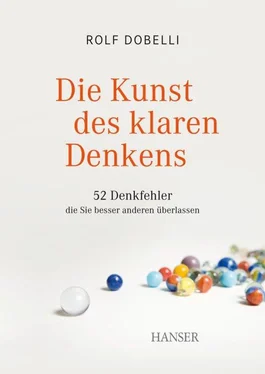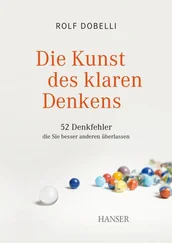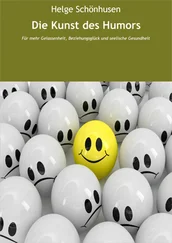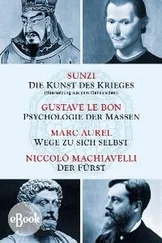Rolf Dobelli - Die Kunst des klaren Denkens
Здесь есть возможность читать онлайн «Rolf Dobelli - Die Kunst des klaren Denkens» весь текст электронной книги совершенно бесплатно (целиком полную версию без сокращений). В некоторых случаях можно слушать аудио, скачать через торрент в формате fb2 и присутствует краткое содержание. Год выпуска: 2011, Издательство: Carl Hanser Verlag, Жанр: Психология, на немецком языке. Описание произведения, (предисловие) а так же отзывы посетителей доступны на портале библиотеки ЛибКат.
- Название:Die Kunst des klaren Denkens
- Автор:
- Издательство:Carl Hanser Verlag
- Жанр:
- Год:2011
- ISBN:нет данных
- Рейтинг книги:4 / 5. Голосов: 1
-
Избранное:Добавить в избранное
- Отзывы:
-
Ваша оценка:
- 80
- 1
- 2
- 3
- 4
- 5
Die Kunst des klaren Denkens: краткое содержание, описание и аннотация
Предлагаем к чтению аннотацию, описание, краткое содержание или предисловие (зависит от того, что написал сам автор книги «Die Kunst des klaren Denkens»). Если вы не нашли необходимую информацию о книге — напишите в комментариях, мы постараемся отыскать её.
Die Kunst des klaren Denkens — читать онлайн бесплатно полную книгу (весь текст) целиком
Ниже представлен текст книги, разбитый по страницам. Система сохранения места последней прочитанной страницы, позволяет с удобством читать онлайн бесплатно книгу «Die Kunst des klaren Denkens», без необходимости каждый раз заново искать на чём Вы остановились. Поставьте закладку, и сможете в любой момент перейти на страницу, на которой закончили чтение.
Интервал:
Закладка:
Die Induktion
Das Beispiel mit der Gans bei Nassim Taleb in Form des Thanksgiving-Truthahns. Taleb hat das Beispiel von Bertrand Russell übernommen (Hähnchen), und dieser wiederum von David Hume. Taleb, Nassim Nicholas: The Black Swan , Random House, 2007, S. 40.
Induktion ist eines der großen Themen der Erkenntnisphilosophie: Wie können wir etwas über die Zukunft aussagen, wenn wir nichts anderes als die Vergangenheit haben? Antwort: Wir können es nicht. Jede Induktion ist immer mit Unsicherheit behaftet. Dasselbe mit Kausalität: Wir können nie wissen, ob etwas kausal aufeinanderfolgt, selbst wenn wir es eine Million Mal beobachtet haben. David Hume hat diese Themen im 18. Jahrhundert mit Brillanz behandelt.
Die Verlustaversion
Dass ein Verlust etwa doppelt so schwer wiegt wie ein Gewinn, siehe: Kahneman, Daniel; Tversky, Amos: »Prospect Theory: An Analysis of Decision under Risk«, Econometrica 47 (2), März 1979, S. 273.
Das Beispiel mit der Kampagne zur Früherkennung von Brustkrebs, siehe: Meyerowitz, Beth E.; Chaiken, Shelly: »The effect of message framing on breast self-examination attitudes, intentions, and behavior«, Journal of Personality and Social Psychology 52 (3), März 1987, S. 500–510.
Wir reagieren stärker auf negative Reize als auf positive. Siehe: Baumeister, Roy F.: The Cultural Animal: Human Nature, Meaning, and Social Life , Oxford University Press, 2005, S. 201 und S. 319.
Dass wir nicht die einzige Spezies mit Verlustaversion sind, beschreibt dieses Forschungspapier. Affen zeigen diesen Denkfehler auch: Silberberg, A. et al.: »On loss aversion in capuchin monkeys«, Journal of the Experimental Analysis of Behavior 89, 2008, S. 145–155.
Social Loafing
Kravitz, David A.; Martin, Barbara: »Ringelmann rediscovered: The original article«, Journal of Personality and Social Psychology 50 (5), 1986, S. 936–941.
Latané, B.; Williams, K. D.; Harkins, S.: »Many hands make light the work: The causes and consequences of social loafing«, Journal of Personality and Social Psychology 37 (6), 1979, S. 822–832.
Siehe auch: Plous, Scott: The Psychology of Judgment and Decision Making , McGraw-Hill, 1993, S. 193.
Zum Risky Shift, siehe: Pruitt, D.: »Choice shifts in group discussion: An introductory review«, Journal of Personality and Social Psychology 20 (3), 1971, S. 339–360 und Moscovici, S.; Zavalloni, M.: »The group as a polarizer of attitudes«, Journal of Personality and Social Psychology 12, 1969, S. 125–135.
Das exponentielle Wachstum
Das Beispiel mit den 30 Tagen: Munger, Charles T.: Poor Charlie’s Almanack , Third Edition, Donning, 2008, S. 366.
Gute Beispiele zum exponentiellen Wachstum, siehe: Dörner, Dietrich: Die Logik des Misslingens. Strategisches Denken in komplexen Situationen , Rowohlt, 2003, S. 161 ff.
Siehe auch: Dubben, Hans-Hermann; Beck-Bornholdt, Hans-Peter: Der Hund, der Eier legt. Erkennen von Fehlinformation durch Querdenken , rororo, 2006, S. 120 ff.
Exponentielles Bevölkerungswachstum war auch das Thema der 1970er-Jahre, als die Verknappung der Ressourcen zum ersten Mal ins Blickfeld der Öffentlichkeit geriet. Siehe: Meadows, Donella H. et al.: The Limits to Growth , University Books, 1972. Die New Economy mit ihrem Glauben an Wachstum ohne Inflation und Ressourcenknappheit hat dieses Thema von Tisch gefegt. Seit der Rohstoffknappheit 2007 wissen wir, dass das Thema nicht vom Tisch ist. Ganz im Gegenteil. Die Weltbevölkerung wächst noch immer exponentiell.
The Winner’s Curse
Der Klassiker zum Thema: Thaler, Richard: »The Winner’s Curse«, Journal of Economic Perspectives 1, 1988.
Wenn es darum geht, den anderen auszustechen, siehe: Malhotra, Deepak: »The desire to win: The effects of competitive arousal on motivation and behavior«, Organizational Behavior and Human Decision Processes 111 (2), März 2010, S. 139–146.
Wie viel würden Sie für 100 Euro bezahlen? Beispiel von Plous, Scott: The Psychology of Judgment and Decision Making , McGraw-Hill, 1993, S. 248.
»Warren Buffett’s rule for open-outcry auctions: don’t go.« Charlie Munger on the Psychology of Human Misjudgment . Rede an der Harvard University, Juni 1995.
Der fundamentale Attributionsfehler
Der Stanford-Psychologe Lee Ross hat zum ersten Mal den fundamentalen Attributionsfehler beschrieben, siehe: Ross, L.: »The intuitive psychologist and his shortcomings: Distortions in the attribution process«, in: Berkowitz, L. (Hrsg.): Advances in experimental social psychology (vol. 10), Academic Press, 1977.
Das Experiment mit der Rede, siehe: Jones, E. E.; Harris, V. A.: »The attribution of attitudes«, Journal of Experimental Social Psychology 3, 1967, S. 1–24.
Siehe auch: Plous, Scott: The Psychology of Judgment and Decision Making , McGraw-Hill, 1993, S. 180 f.
Die falsche Kausalität
Dubben, Hans-Hermann; Beck-Bornholdt, Hans-Peter: Der Hund, der Eier legt. Erkennen von Fehlinformation durch Querdenken , rororo, 2006, S. 175 ff.
Das schöne Beispiel mit den Störchen, ebenda S. 181.
Bücher im Haushalt, siehe: National Endowment for the Arts: To Read or Not To Read: A Question of National Consequence, November 2007.
The Halo Effect
Das ultimative Buch für den Halo Effect in der Wirtschaft, von hier auch das Cisco-Beispiel: Rosenzweig, P.: The Halo Effect: and the Eight Other Business Delusions That Deceive Managers , Free Press, 2007.
Thorndike, E. L.: »A constant error on psychological rating«, Journal of Applied Psychology IV, 1920, S. 25–29.
Nisbett, Richard E.; Wilson, Timothy D.: »The halo effect: Evidence for unconscious alteration of judgments«, Journal of Personality and Social Psychology 35 (4), 1977, S. 250–256.
Die alternativen Pfade
Das Beispiel mit dem Russisch Roulette: Taleb, Nassim Nicholas: Fooled By Randomness , Random House, 2001, S. 23.
»It is hard to think of Alexander the Great or Julius Caesar as men who won only in the visible history, but who could have suffered defeat in others. If we have heard of them, it is simply because they took considerable risks, along with thousands of others, and happened to win. They were intelligent, courageous, noble (at times), had the highest possible obtainable culture in their day – but so did thousands of others who live in the musty footnotes of history.« (Taleb, Nassim Nicholas: Fooled by Randomness , Random House, 2001, S. 34)
»My argument is that I can find you a security somewhere among the 40,000 available that went up twice that amount every year without fail. Should we put the social security money into it?« (ebenda S. 146)
Die Prognoseillusion
Tetlock, Philip E.: How Accurate Are Your Pet Pundits? Project Syndicate/Institute for Human Sciences, 2006.
Koehler, Derek J.; Brenner, Lyle; Griffin, Dale: »The Calibration of Expert Judgment. Heuristics and biases beyond the laboratory «, in: Gilovich, Dale Griffin and Daniel Kahneman (Hrsg.): Heuristics and Biases. The Psychology of Intuitive Judgment , Cambridge University Press, 2002, S. 686.
»The only function of economic forecasting is to make astrology look respectable.« (John Kenneth Galbraith,http://news.bbc.co.uk/2/hi/busi ness/4960280.stm)
Der Prognose-Spruch von Tony Blair in: Buehler, Roger; Griffin, Dale; Ross, Michael: »Inside the planning fallacy: The causes and consequences of optimistic time predictions«, in: Gilovich, Thomas; Griffin, Dale; Kahneman, Daniel (Hrsg.): Heuristics and biases: The psychology of intuitive judgment , Cambridge University Press, 2002, S. 270.
Читать дальшеИнтервал:
Закладка:
Похожие книги на «Die Kunst des klaren Denkens»
Представляем Вашему вниманию похожие книги на «Die Kunst des klaren Denkens» списком для выбора. Мы отобрали схожую по названию и смыслу литературу в надежде предоставить читателям больше вариантов отыскать новые, интересные, ещё непрочитанные произведения.
Обсуждение, отзывы о книге «Die Kunst des klaren Denkens» и просто собственные мнения читателей. Оставьте ваши комментарии, напишите, что Вы думаете о произведении, его смысле или главных героях. Укажите что конкретно понравилось, а что нет, и почему Вы так считаете.












